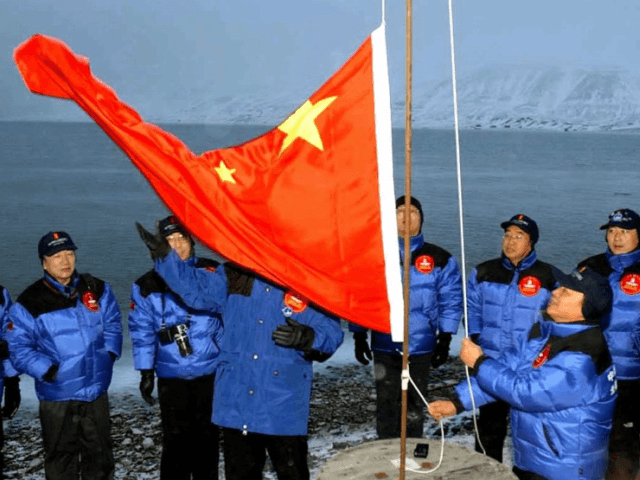China’s State Council Information Office published a white paper on Friday outlining a plan to extend its “New Silk Road” trade route and infrastructure project through the Arctic Circle, creating what the paper dubbed a “Polar Silk Road.”
The trade project, officially known as One Belt, One Road (OBOR) or the Belt and Road Initiative, was loosely conceived as an attempt to rebuild the fabled Silk Road trade route that flourished until the 15th Century. There was not much commerce flowing through the Arctic back then, but modern technology brought both shipping and resource development to the area. China expressed an interest in the region’s oil, natural gas, minerals, fishing, tourism, and scientific research.
“Concrete steps can be made to coordinate development strategies with the Arctic States, encourage joint efforts to build a blue economic passage linking China and Europe via the Arctic Ocean, enhance Arctic digital connectivity, and build a global infrastructure network,” China’s Xinhua News wrote in its summary of the new paper.
“While pursuing its own interests, China will pay due regard to the interests of other countries and the broader international community,” the paper promised.
“The publication of the paper underscores China’s growing geopolitical ambition in a region largely regarded as a last frontier for exploration. Its desire to become a significant player in the Arctic has largely emerged only in the past few years under the leadership of President Xi Jinping, who first referred to China as an upcoming ‘polar-region power’ during a 2014 state visit in Australia,” the Financial Times observes.
To that end, China has been working on improving relations with nations that border on the Arctic and have long-standing interests there. The steps taken include establishing a joint Arctic research center in Shanghai with the Nordic countries and purchasing mining rights from Greenland, which is in the process of emerging from Danish rule and may become fully independent in 2021.
The Chinese white paper offers copious reassurances that all of its ambitions in the Arctic are constructive and cooperative, but FT cites a recent example of China stretching its promises: a Chinese research ship was given permission by Canada to conduct scientific research in the Northwest Passage, but instead Chinese media proclaimed the ship’s voyage and “opened a new sea lane for China.”
The U.S. State Department’s International Security Advisory Board advised careful scrutiny of China’s Arctic activities in November 2016, expressing concern that Chinese cooperation with Russia in the region has not been monitored carefully enough by the U.S. government.
Financial Times and the BBC are among several Western media outlets to note that China claims global warming has opened profitable new shipping lanes through the Arctic, including a route that would facilitate much faster shipping to Europe than using the Suez Canal.

COMMENTS
Please let us know if you're having issues with commenting.